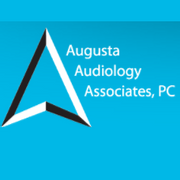
Hearing loss is a common issue. However, there are several different problems that can lead to loss of hearing. Learning more about these causes can help you identify symptoms and receive treatment before the condition worsens. Below is a helpful guide you can use alongside assistance from an audiologist.
A Guide to Hearing Loss
Conductive
Sound travels from your outer ear to the middle ear, where the eardrum is, and then to the inner ear where the cochlea captures and transmits audio to your brain. Conductive hearing loss occurs when sound is unable to pass through the outer and inner ear. People with this condition have difficulty hearing quiet sounds, and loud sounds may be muffled.
Conductive issues occur when there are blockages in the ear or when the canal system isn’t functioning correctly. Fluid may build up, earwax or foreign objects may create a blockage, or the ear canal may become infected. Most of these causes are reversible, which is why conductive hearing loss is usually temporary.
Sensorineural
Loss of hearing can also occur after the inner ear has been damaged. With inner each damage, it may be difficult to hear soft sounds or discern loud sounds. Damage may come from an untreated illness, trauma to the ear or head, or exposure to loud noises. This condition may also be genetic.
 Sounds above 70 dB—the volume of a normal conversation—will begin contributing to noise-related hearing loss. Loud concerts, motorcycles, fireworks, sirens, and power tools can cause significant damage. In most cases, sensorineural issues require hearing aids to restore hearing.
Sounds above 70 dB—the volume of a normal conversation—will begin contributing to noise-related hearing loss. Loud concerts, motorcycles, fireworks, sirens, and power tools can cause significant damage. In most cases, sensorineural issues require hearing aids to restore hearing.
Mixed
Mixed hearing loss is a combination of sensorineural and conductive. A person may ride a motorcycle on the weekends and also develop fluid buildup in their ear from swimming laps at the gym, for example. Treatment will be able to lessen or stop the progression of hearing loss, though it cannot reverse the damage that’s already been done.
If you have concerns about your hearing, contact Augusta Audiology Associates in Fishersville, VA. For 24 years, this practice has provided reliable hearing assessments and care to help patients manage hearing-related issues. Learn more about their hearing aids by visiting their website. Call (540) 332-5790 to schedule an exam and follow their Facebook page to receive more tips about ear care.
About the Business
Have a question? Ask the experts!
Send your question

